The 20 best ever shows on the BBC, from Strictly and Fawlty Towers to Doctor Who
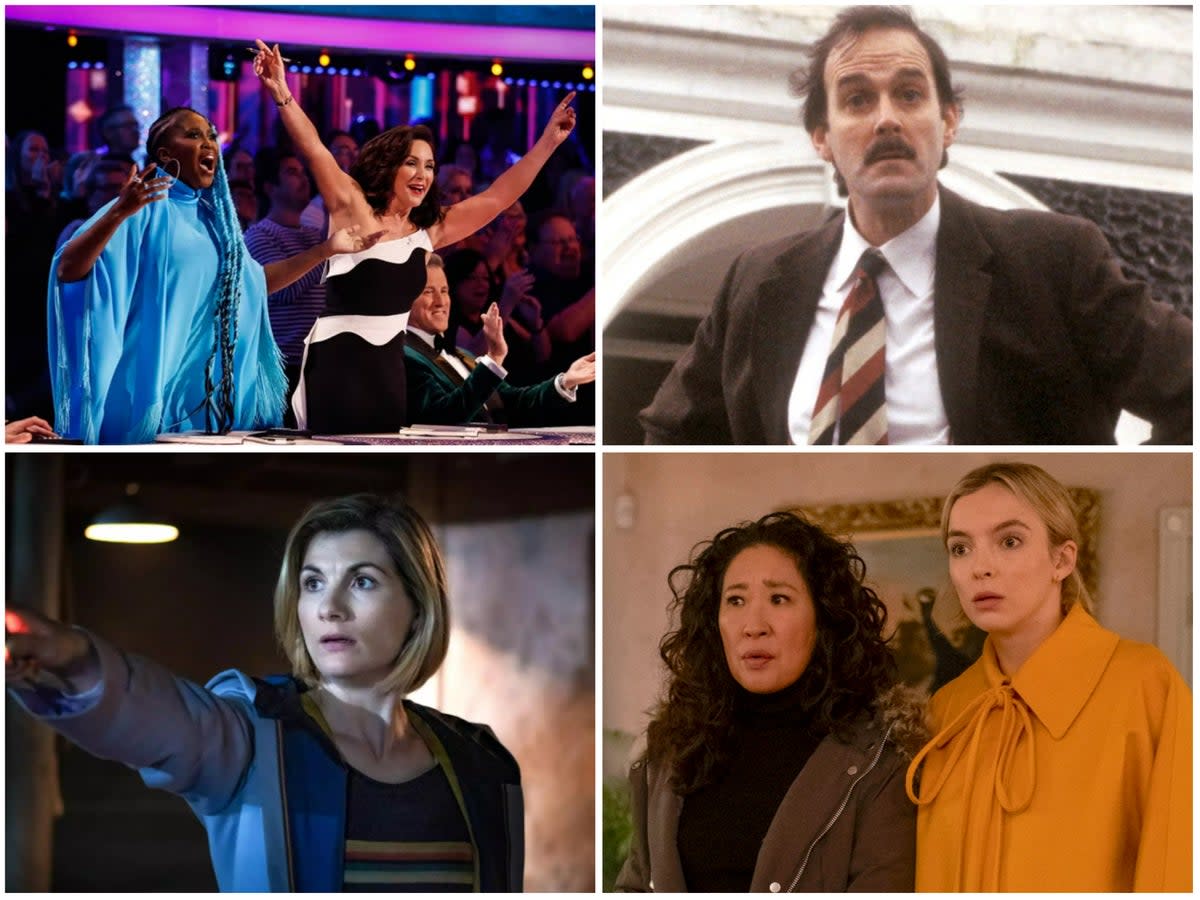
A 100th anniversary is a milestone in the history of any institution. In the case of the BBC, the centenary of its founding on 18 October 1922 triggers a rush of memories, a landslide of couch-bound nostalgia. But whether it’s Doctor Who’s Dalek battles, David Attenborough striking up a bromance with a family of gorillas, or Line of Duty’s Ted Hastings invoking “Jesus, Mary, Joseph and the wee donkey”, the sweep of the corporation’s output across the past century is impossible to condense into a few paragraphs. Still, we’ve tried to pull together some of the most iconic shows of those 10 decades, from drama and documentary to comedy via arts, music and science fiction. All are iconic in their own right. Together they are a portrait of a time, a country, and a belief in broadcasting as a force for good in the world.
20. Line of Duty (2012 – 2021)
Mother of God, what a tangled tale Jed Mercurio wove with his multi-season tale of bent coppers and the few good men and women trying to take them down. Ted Hastings stands tall among the most quotable TV characters of the past decade, while the interrogation scenes – all those white walls and impressive tables – have become ripe for parody. In later seasons, the series tended to trip up on its cleverness – as well as feeling increasingly detached from the real world. But in its early years, LoD was a thriller like no other.
19. Blackadder (1983 – 1989)
At least 50 per cent of our shared recollection of the First World War is drawn from the final five minutes of Blackadder Goes Forth. Rowan Atkinson, Hugh Laurie and companions go over the top – and the camera cuts to modern-day Flanders and poppies in the breeze. But long before the heartache, Richard Curtis’s historical comedy had mercilessly yanked our funny bones with his hilarious visits to Regency, Elizabethan and Medieval England.
18. The Thick of It (2005 – 2012)
“As useful as a marzipan dildo”, “omnishambles”, “You’re like that coffee machine, you know: from bean to cup, you f*** up” – for its insults alone, Armando Iannucci’s fly-on-the-wall political comedy deserves all the prizes. Plus it gave the world Malcolm Tucker, the avenging angel spin doctor. Alas, British politics is now so ludicrous that The Thick of It has retroactively lost much of its bite. What’s the point of satire in the age of Partygate?
17. Strictly Come Dancing (2004 – present)
Until Strictly, reality TV was largely cruel and punishing. Would-be stars had their hearts broken, celebrities were humiliated and gaslit. Then Strictly came along with the radical idea of feel-good reality TV, in which A-listers set themselves an interesting new challenge while we at home cheered along. How groundbreaking and how enduring.
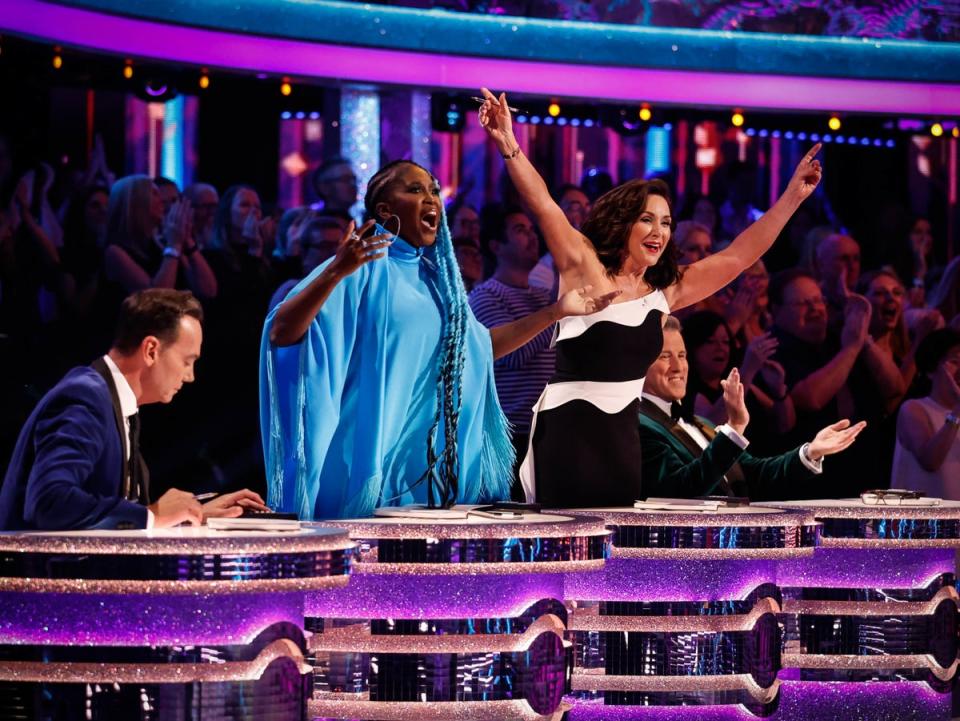
16. The Good Life (1975 – 1978)
This gently downbeat comedy about striving middle-class suburbanites – played by Richard Briers and Felicity Kendal – gazed deep into the British soul and smiled sadly at what it saw there. There would be louder, more lurid comedies – in the 1970s, especially. But few series would so effectively take the temperature of a slightly fed-up nation adrift in a post-imperial malaise.
15. Blue Peter (1958 – present)
Youthful presenters in sensible sweaters. Arts and crafts featuring paper, scissors and enough Sellotape to wrap the Statue of Liberty twice over. Song-and-dance numbers where nobody could sing and no one could be bothered to dance. Kids’ TV peaked with Blue Peter and would never rise to such heights again – with the possible exception of Tom Hardy doing the Bedtime Story on CBeebies.
14. Neverwhere (1996)
Netflix’s Sandman has everyone in a swoon – but for Neil Gaiman connoisseurs it was in Neverwhere that he created his lasting work for the small screen. Set in a Narnia-style parallel-universe London, where Puss in Boots is real and Knightsbridge is guarded by actual knights, it found magic in the everyday. Neverwhere also retains a lasting weirdness due to the baffling decision to film on video rather than film. And so, while “only” 26 years old, it feels far more ancient – like a relic from a creepy analogue era that was ending even as it was broadcast in the Summer of Britpop.
13. The Morecambe and Wise Show (1968 – 1977)
Eric, Ernie, a female guest star whose job was to stand there and smile. And groaners you could see coming a mile off. Welcome to the 1970s. But though products of their age, there was a sweetness to Morecambe and Wise that will never go out of fashion. And that affection made for surprisingly ribald comedy. Which is why they are remembered when many of the duos of that era have fallen away – or simply aged terribly.
12. Peaky Blinders (2013 – 2022)
It’s an elevator pitch that might have you reaching for the emergency stop. Cillian Murphy in a 1920s flat cap, on a horse, while Nick Cave strikes up “Red Right Hand”. Yet from these obscure ingredients, Steven Knight wrought a Birmingham gangster saga that crackled with Tarantino-esque energy (even if the finale was rather pants).
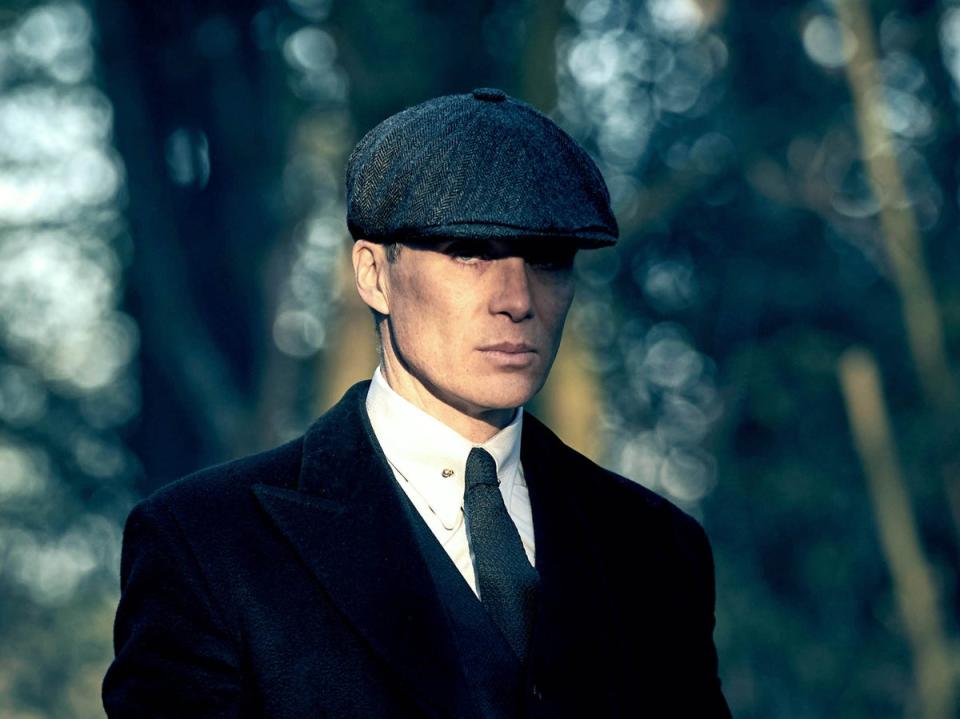
11. The Office (2001 – 2003)
Ricky Gervais has become a divisive and even offensive figure. But The Office was the high-water mark for cringe comedy, and in David Brent, Gervais (along with Stephen Merchant) created one of the greatest TV characters of all time – a figure so ridiculous and yet sympathetic that it was hard not to think of him as a real person. Plus there was the Tim/Dawn romance, which revealed that, under the cruel guffaws, Gervais was a great big softie.
10. Grange Hill (1978 – 2008)
Decades before Skins and The Inbetweeners, Grange Hill was bringing viewers the harsh reality of teenage life. From glue-sniffing to scraps behind the bike shed, the trauma of growing up in the 1970s was laid out with an almost documentary-like eye for detail. Until then, British telly had depicted adolescence as a time of halcyon innocence and feel-good japes. Grange Hill gave us the truth – zits and all.
9. Killing Eve (2018 – 2022)
The international espionage genre was rebuilt from the ground up with this cat-and-mouse thriller that, in its early years, threatened to leave James Bond shaken, stirred and thoroughly outmoded. Jodie Comer burned a hole in the screen as killer-with-a-thousand-accents Villanelle. And rather than try to match her energy, Sandra Oh smartly lowed the temperature as deadpan Eve. It all fizzled out in the end – but Killing Eve season one was a short, sharp shock of TV perfection.
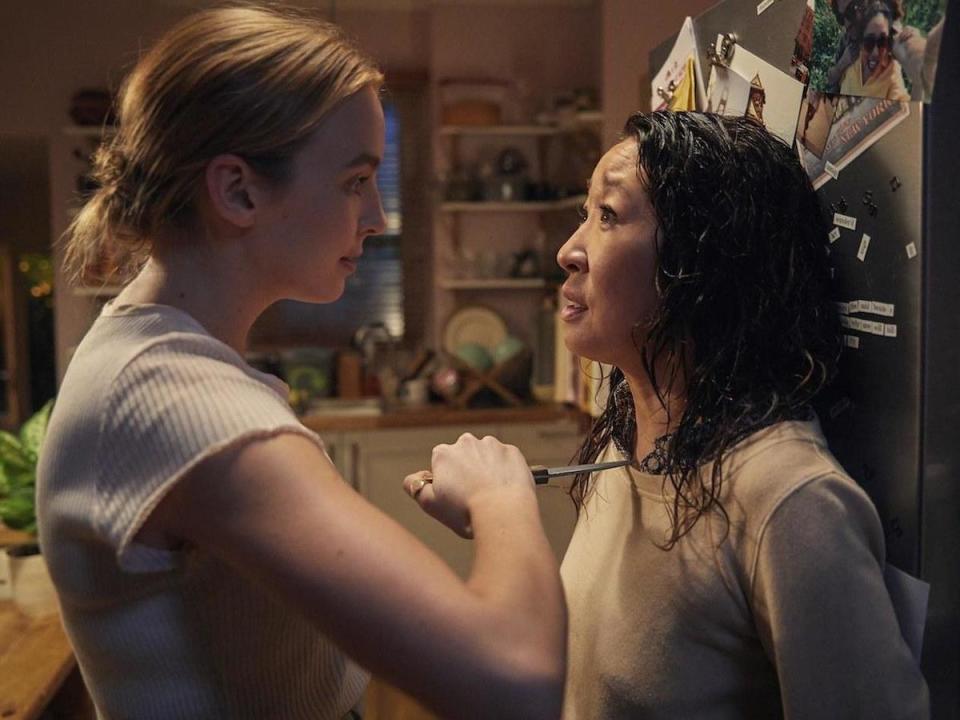
8. The Great British Bake Off (2010 – present)
In an era when television has become increasingly deafening and overbearing, the genius of Bake Off has been to go small. This is TV as a sweet treat – a moment of light escapism. There are no real stakes (and no steaks, come to think of it) and everyone seems happy just to be there as they attend to their buns and battenbergs. Sometimes you simply want to nibble on something tasty and inconsequential – and that is the function Bake Off serves (even if it did migrate to Channel 4 in 2017).
7. Monty Python’s Flying Circus (1969 – 1974)
Comedy was turned head over heels and twisted inside out by Monty Python, whose surrealist, madcap humour felt like the equivalent of an early Pink Floyd record or Sgt Pepper outtake. From the dead parrot sketch to the philosophers’ football match, it took British whimsy and supersized it into something strange and hilarious.
6. Sherlock (2010 – 2017)
Stephen Moffat and Mark Gatiss lost the plot – figuratively but sometimes literally – in the final few seasons of their Baker Street blockbuster. But series one and two were pure sleuthing magic, and Benedict Cumberbatch and Martin Freeman had the sort of grumpy chemistry you just can’t manufacture. The best Beeb thriller of all time? Elementary.
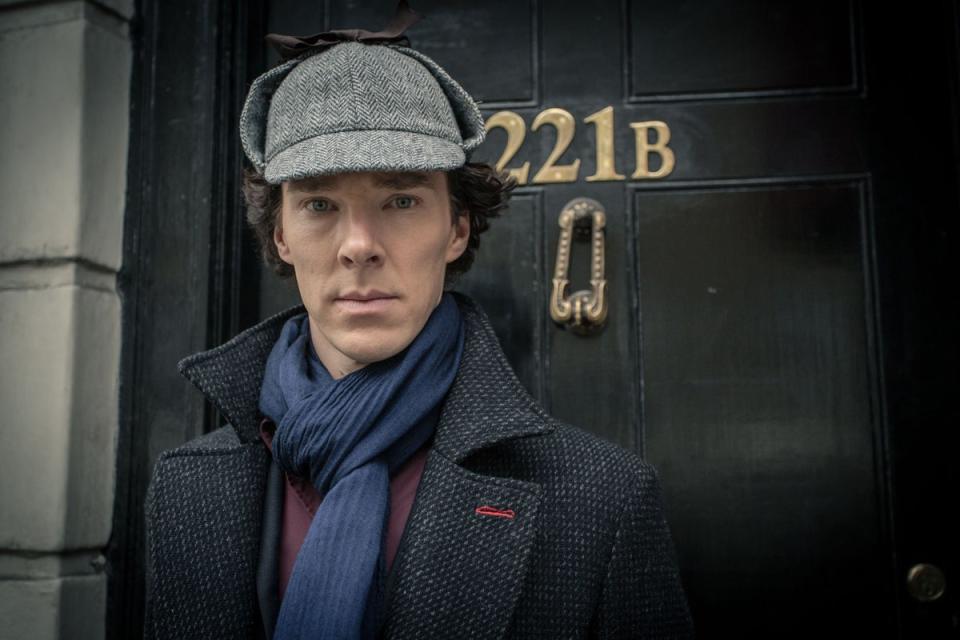
5. Fawlty Towers (1975 – 1979)
With his tiresome rants against “snowflakes”, John Cleese has become a polarising presence in his later years. And let’s be honest, from “hilarious” Catalan waiter Manuel to the dodgy Irish builders, much of Fawlty Towers is “of its time” – ie, a bit racist. But in full flight, Cleese’s portrait of an inept hotel manager on the English Riviera was lean-burning comedic jet fuel. In Fawlty, Cleese created one of the most singular characters in comedy – an everyman striver who just couldn’t catch a break. And when his Austin Countryman refused to start and he attacked it with a tree branch, he was speaking to the frustrations of a country mired in its greyest, grimmest decade.
4. Top of the Pops (1964 – 2006)
Bowie bashing out “Starman”, Kate Bush gazing at the camera as she sings “Wuthering Heights”, Blur romping through “Country House” with Alex James wearing an Oasis T-shirt. There are too many highlights to list when it comes to Top of the Pops, the crucible in which British music was forged, the green sward on which the Britpop wars unfolded. But let’s mention just one more anyway – Kurt Cobain doing “Smells Like Teen Spirit” in that funny voice. You don’t get more punk than that.
3. Only Fools and Horses (1981 – 2003)
Del Boy, Rodders and a get-rich-quick scheme always on the go. Only Fools and Horses didn’t sound like a particularly promising idea for a sitcom when writer John Sullivan brought it to the airwaves in 1981. And yet Sullivan’s story of two siblings on the make was a perfectly spun portrait of love, family, and the underdog desire to live a bigger life. The humour hasn’t necessarily aged well; this was a world where men were men and women were “birds” or “her indoors”. But the jokes were ultimately beside the point: the warmth between Rodney, Del Boy, Grandad and later Uncle Albert was the reason we were watching anyway.
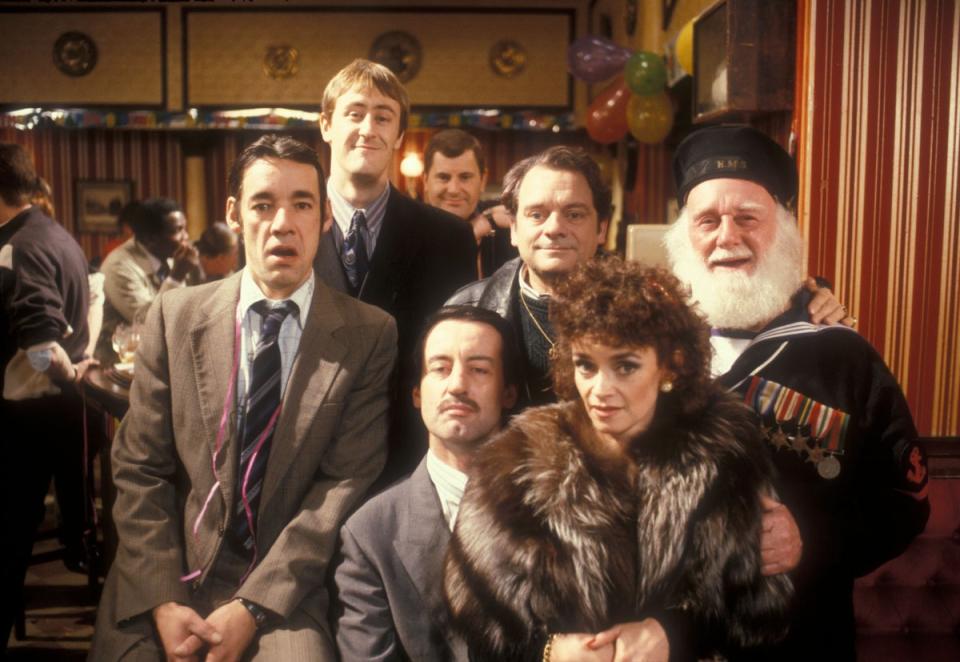
2. Life on Earth (1979)
So iconic has David Attenborough’s natural history narration become, it is impossible to watch footage of a wildebeest fleeing lions or monkeys grooming each other without conjuring your own Attenborough-style voiceover in your head (see: you’re doing it right now). From Planet Earth to Blue Planet, he’s been clocking up zoological zingers for decades. And though he had started as a wildlife broadcaster with Zoo Quest in the 1950s, it was in 1979 with Life on Earth that Attenborough and the BBC Natural History Unit conjured, out of thin air, the wholly new genre of blockbuster wildlife telly.
1. Doctor Who (1963 – present)
An eccentric in an interesting coat emerging from a police box to save the Earth once again. Is there a more iconic image in science fiction? One of the oldest series on this list, it is a mark of the Doctor’s mastery of space, time and mass-market TV that the Gallifreyan gadabout has remained consistently popular. That has been so whether the character was played by William Hartnell in that original 1963-1966 incarnation, by the soon-to-depart Jodie Whitaker today, or (I suspect) by her successor, Ncuti Gatwa. Bonus points for Delia Derbyshire’s iconic theme tune, which invented synth-pop a decade before Kraftwerk.

 Yahoo Movies
Yahoo Movies 
